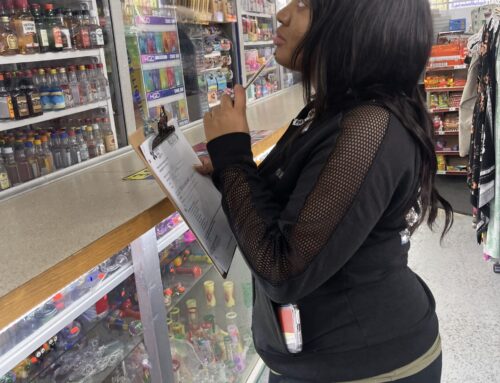Counter Tools’ partner Massachusetts has had recent successes passing policies that restrict flavored tobacco to adult-only establishments. In 2016 the cities of Boston and Lowell both passed flavor policies and evaluations of the policies showed significant decline in youth access to flavored tobacco products. Lowell’s study also included youth surveys that assessed youth perceptions related to flavored tobacco use. The results of these studies show that limiting access to flavored tobacco products may be an effective way to curb use among youth, even in the short term.
Lowell
The city of Lowell passed a policy in 2016 to prohibit the sale of flavored tobacco products in all retail tobacco stores except for adult-only stores. These stores require a minimum age of 21 to enter, such as smoking bars, vape shops, and tobacconists.
In Lowell and its nearby control city Malden, surveys were conducted at retailers to assess the presence of flavored product advertisements and products. Data collection was managed using a platform developed by Counter Tools. Youth surveys were also conducted in both communities that captured youth demographics, tobacco products used, and perceptions and behaviors related to flavored tobacco use.
The students and retailers were assessed at the time the policy took effect and 6 months later, and the results showed a significant impact on youth use of tobacco products. Students reported a decreased amount of use flavored tobacco in Lowell, while students in Malden actually reported increased use. The use of any non-flavored tobacco product also decreased in Lowell while in Malden it increased.
Store assessments showed clear differences in flavored product availability. In Lowell there was a 70% decrease in the number of stores where flavored products were available. In Malden, there was no significant change in the number of flavored products sold per retailer.
Read the full Lowell study in the American Journal of Preventive Medicine: Short-Term Impact of a Flavored Tobacco Restriction: Changes in Youth Tobacco Use in a Massachusetts Community
The story is also on CNN: One town’s flavor ban seemed to work to cut youth tobacco use
Boston
The city of Boston also restricted the sale of flavored tobacco products to adult-only retailers in 2016. Evaluation data showed the number of youth-accessible retailers that sold flavored products decreased to 14.4% after eight months, compared with 100% of retailers before the policy was implemented. The presence of flavored tobacco product advertisements also decreased from 58.9% of retailers to 28.0%.
Read the full Boston study in Tobacco Control: Evaluating tobacco retailer experience and compliance with a flavoured tobacco product restriction in Boston, Massachusetts: impact on product availability, advertisement and consumer demand
Counter Tools has partnered with Massachusetts since 2014. We are thrilled to see their hard work pay off and have a part in their story.
Learn more about Flavored Tobacco Products on our sister site CounterTobacco.org



